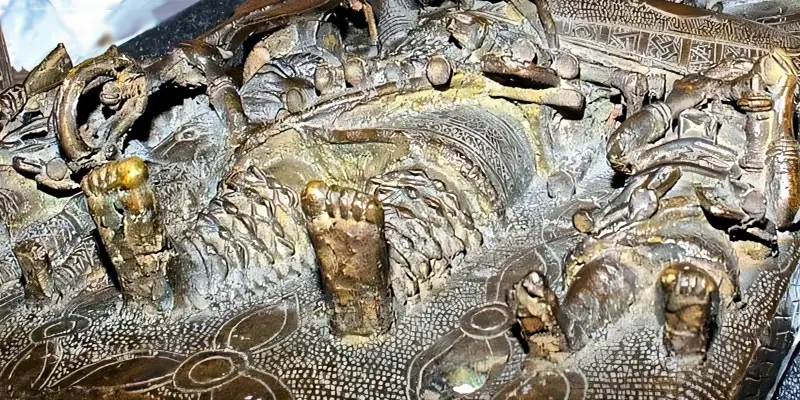Early African Civilizations History
History of the Benin Empire
The history of the Benin Empire plays an important role in West African history. This great empire left an unmistakable mark on the region, both culturally and politically. The famous Benin Bronzes serve as a reminder of the Benin Empire’s artistic achievements and a glimpse at its cultural influences in West Africa. Furthermore, we shall look at the Benin Empire’s origins, rise to power, important achievements, and eventual decline.
Table of Contents

Origins of the Benin Empire
The Benin Empire originated in the eleventh century, when the Edo people relocated to what is now Nigeria. The reign of the Ogiso dynasty over the kingdom gradually transformed it from a collection of communities to an established state.
The Oba dynasty emerged in the 13th century, when Eweka, the successor of the Ogiso dynasty, overthrew it. For the Beninese Empire, this marked the beginning of a new era characterized by strong central leadership.
The Rise to Power
The Oba dynasty brought the Benin Empire great riches and growth. Due to its military strength and strategic partnerships, the empire was able to capture adjacent territories and extend its rule over a broad region.
The Empire’s crowning achievement was the construction of Benin City, a beautiful example of urban planning and design. The massive defensive walls that surrounded the city symbolized the empire’s might and dedication to defending its residents.
Notable Achievements
The Empire was well known for its contributions to art and culture. The bronze-casting craftspeople of the empire produced elaborate sculptures that portrayed religious ceremonies, the imperial court, and daily life. The magnificent pieces of art provide witness to the rich cultural legacy of the empire.
To maintain efficient government, the empire also developed a complex administrative framework with a structure of hierarchy. The Oba held supreme authority, supported by a council of chiefs and elders who helped in decision-making processes.
The Decline of the Benin Empire
Despite its tremendous successes, the Benin Empire encountered problems that led to its final demise. British armies conducted a punitive expedition against the empire in the late nineteenth century, trying to seize its resources and establish colonial supremacy.
Many of the empire’s precious treasures, notably the Benin Bronzes, were looted and destroyed during the devastating Benin Punitive Expedition of 1897. This incident constituted a watershed moment in the Benin Empire’s history, signaling the end of its independence and the beginning of British colonial rule.
Legacy and Cultural Significance
The cultural legacies of the Benin Empire survive despite its fall. The Benin Bronzes, which are today dispersed among museums across the globe, offer insights into the rich history of West Africa and act as a reminder of the artistic accomplishments of the empire.
The Benin Kingdom, led by the Oba, is still an important cultural institution in Nigeria today. Traditional practices and rites from the kingdom are still observed today, preserving the empire’s legacy and impact on the region.
Conclusion
The rich history and cultural legacy of West Africa are exemplified by the Benin Empire. The empire’s accomplishments, from its modest beginnings to its ascent to become a powerful monarchy, still fascinate researchers and enthusiasts alike. The heritage of the Benin Empire endures, serving as a constant reminder of the resilience and determination of the people who once called it home, despite its eventual decline.
